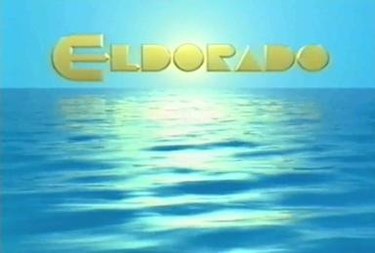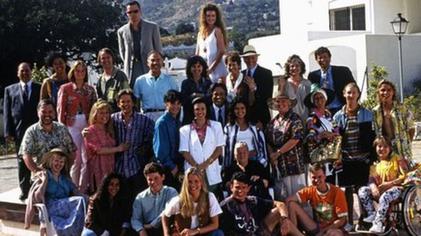I could tell you about how I’ve just finished re-reading journalist Manuel Chaves Nogales’s reconstruction of bullfighter Juan Belmonte’s autobiography. The literary recreation of the life of the matador from Triana, which ended in suicide in 1962, warrants further discussion but, on reflection, confinement calls out for light relief. So I’ll talk instead about a third-rate soap, which takes me down memory lane to the eve of me first taking up Spanish at school in 1993.

Forget Blur versus Oasis, the real cultural war of the nineties was between Eldorado (BBC, 1992-1993) and Coronation Street (ITV, 1960-). With the imminent threat of having the privilege to charge a licence fee removed if the public broadcaster failed to reach a wider cross-section of society, the BBC was in desperate need of a hit. Ten million pounds of public money was pumped into building a set on the Costa del Sol for a new soap-opera, dreamt up by the creative minds behind EastEnders (BBC, 1985), and featuring an ex-pat community. Working title Little Britain was deemed too parochial in the year of the Maastricht Treaty, and characters from across Europe were shoehorned into rushed scripts written by committee.
For the first time in two decades, I’m back living with my parents. A lifetime soap addict, my mother has requested, only half in jest, that the EastEnders theme tune be played at her funeral. Her concern that I might lose touch with my cultural heritage was such that copies of Inside Soap magazine were dispatched to Madrid during my Year Abroad. There is no graduation picture of me at my family home. In the kitchen, however, there is a framed photo of my long suffering post-doctoral researcher and me in front of the Rovers Return, taken at the Granada ITV Studios last year when I was called as reserve member for the Wadham College alumni team in University Challenge. A collateral benefit of coronavirus has been a final metamorphosis into what cultural theorists define as an omnivore, digesting Geoffrey Parker’s excellent new biography of Charles V, Holy Roman Emperor before joining my Mum to revisit Eldorado on YouTube. As with many academic relativists, I’ve been raised to showcase my inner-snob when it comes to eating and drinking (as far as I know, no cultural studies conference has organised its official dinner in a Wetherspoon or Nando’s), but to invoke omnivorous tendencies by relishing in the non-guilty pleasures of mass culture.

The first episode of Eldorado was broadcast during my last days of primary school. It was axed by incoming BBC Controller Alan Yentob some twelve months later. After taking German as a compulsory first language at my Birmingham grammar school, we were offered the choice of Spanish or French as a second language the following year. My decision was based on a preference for Madonna’s ‘La isla bonita’ over Vanessa Paradis’s ‘Joe le taxi’ (to this day, the only phrase in the language of Molière that trips off my tongue) as opposed to anything I saw in Eldorado. Truth be told, beyond the sultry Pilar – an object of desire for her boss, playboy rogue Marcus (or, as she pronounces it, ‘Marcoos’) – Spain is little more than a sunny backdrop populated with an incongruous hotchpotch of donkeys and disparate European nationalities. If the past is a foreign country, revisiting Eldorado in the post “#Me-Too” landscape brings the viewer face-to-face with a disturbing spectacle of times past, when it was seemingly acceptable for a middle aged restauranteur, Bunny, to return from England with Fizz, a seventeen-year old bride he has met when she was sleeping rough. Trish a fifty-something blonde barroom singer is shacked up with teenager Dieter, brought to life by Kai Maurer, a German tourist who had never acted prior to being discovered by the BBC producers selling timeshares on a local beach. He really shouldn’t have given up the day job.
Pier Paolo Pasolini and Mike Leigh have shown what it is possible to achieve with non-professional actors and improvised scripts. But it’s a high risk strategy. Eldorado was a creative and commercial disaster. That said, when the airports reopen, I’m still tempted to embark on a pilgrimage to the fictional town of Los Barcos, located on the outskirts of Fuengirola. The old set has since been repurposed as a three-star hotel. I’ve not confined myself to bed quite as much as Proust in recent weeks, but I’ve no compunction in admitting to binging out on forgotten episodes of Eldorado, Madeleine cakes for the COVID-19 age.
Professor Duncan Wheeler, Chair of Spanish Studies, University of Leeds. Editor (Hispanic Studies), Modern Language Review
